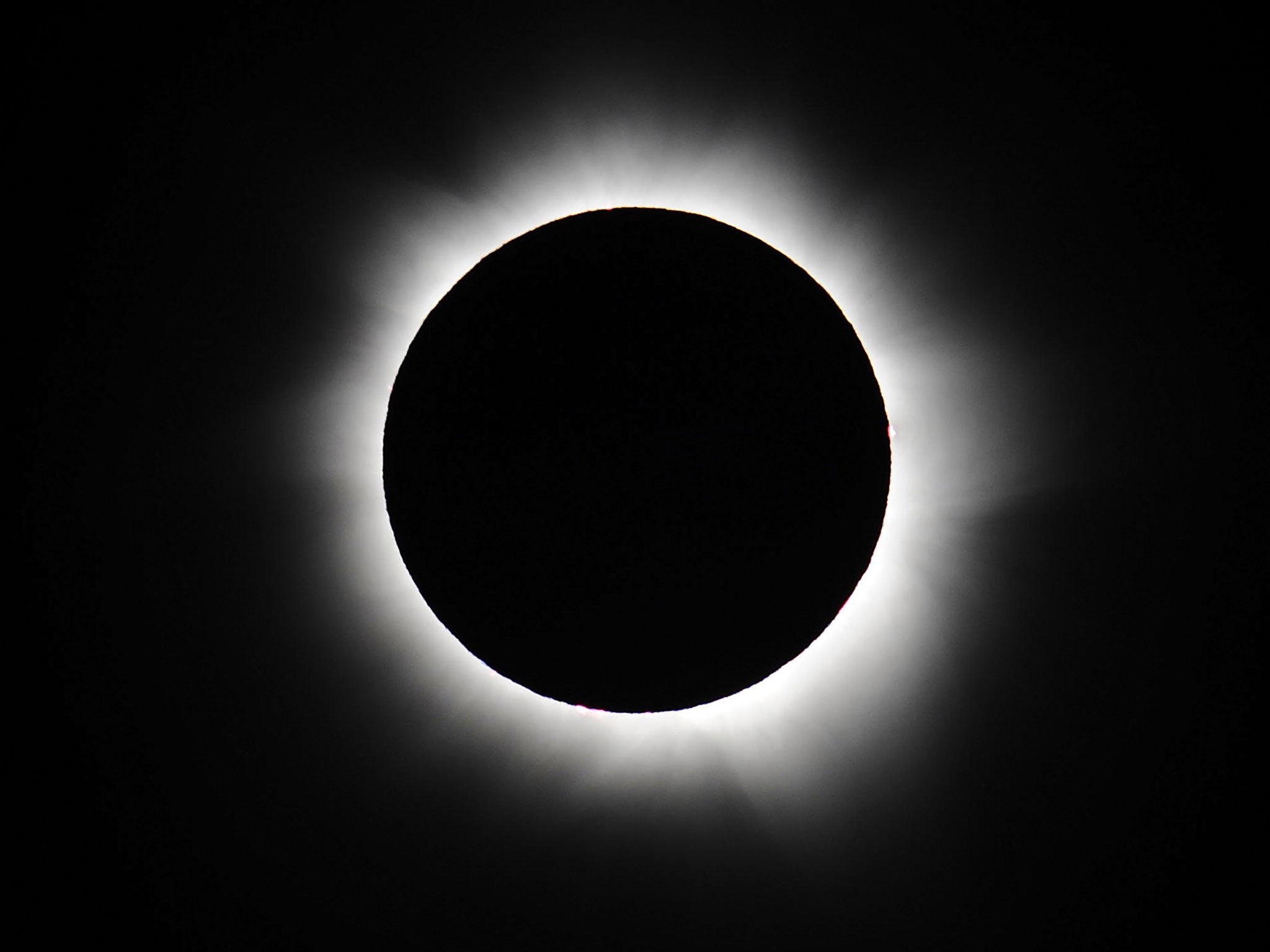Kate Humble: The race is on to catch the total eclipse of the Sun
Something to Declare

Your support helps us to tell the story
From reproductive rights to climate change to Big Tech, The Independent is on the ground when the story is developing. Whether it's investigating the financials of Elon Musk's pro-Trump PAC or producing our latest documentary, 'The A Word', which shines a light on the American women fighting for reproductive rights, we know how important it is to parse out the facts from the messaging.
At such a critical moment in US history, we need reporters on the ground. Your donation allows us to keep sending journalists to speak to both sides of the story.
The Independent is trusted by Americans across the entire political spectrum. And unlike many other quality news outlets, we choose not to lock Americans out of our reporting and analysis with paywalls. We believe quality journalism should be available to everyone, paid for by those who can afford it.
Your support makes all the difference.It is at this time of year – the excitement of Christmas over, the New Year's resolutions already broken, the days dark and cold – that my thoughts turn wistfully to holidays. I am woefully disorganised when it comes to booking a holiday, and have a grudging admiration for those who gleefully have everything sorted months, if not years, ahead.
Last year I met a group of people who do exactly that; they know where they are going to spend their next holiday, years in advance. And although their choice of destination is dictated entirely by the sun, they are not interested in lounging by a pool getting a tan.
They are eclipse chasers: people who will go to often incredible lengths and expense to get to the place on Earth where they will be able to witness the extraordinary phenomenon that is a total eclipse of the sun.
I remember travelling to Cornwall – at the last minute, of course – to see the total eclipse in 1999. Although thick cloud obliterated any view of what was going on, I will never forget the otherworldly feeling of darkness visibly creeping across the sea, triggering the street lights of Penzance to come on and the gulls to rise, screaming with confusion, and then fall suddenly and eerily silent. I remember the sense of stillness, as if the crowd that I stood among on the top of the cliff had been bewitched. I was therefore delighted to be asked to fly to Cairns to film last year's total eclipse. Surely, in tropical Australia, I would be guaranteed a clear view.
Totality was expected just an hour after sunrise. In the days leading up to the eclipse, stubborn cloud hugged the horizon between sea and sky. The scientist who was hosting the eager group of amateur astronomers I was joining was nervous. "We will leave in the middle of the night and drive inland!" he announced and so we set off at 1.30am in search of a cloudless sky.
At the moment just before totality, the light seemed to be sucked away. It was an almost physical sensation, and one that caused me to feel a sort of primeval terror that abated only when totality was reached and the sun was reduced to a thin glowing ring around the dark shadow of the moon. It was a sight so overwhelming, so affecting, that I stood, speechless, tears running unchecked down my face. And then, just moments later, there was a flash, and the light returned – and with it an immense sense of relief. I looked at the scientist, a little bashfully, but he just laughed. "I've seen 20 total eclipses and I feel the same as you every time."
Many of those people I was with in Australia will have already booked to travel to Gabon for the total eclipse on 3 November and now I can absolutely understand their compulsion. I'd like to say I'll be there too, but I haven't quite got round to sorting it out yet.
Join our commenting forum
Join thought-provoking conversations, follow other Independent readers and see their replies
Comments